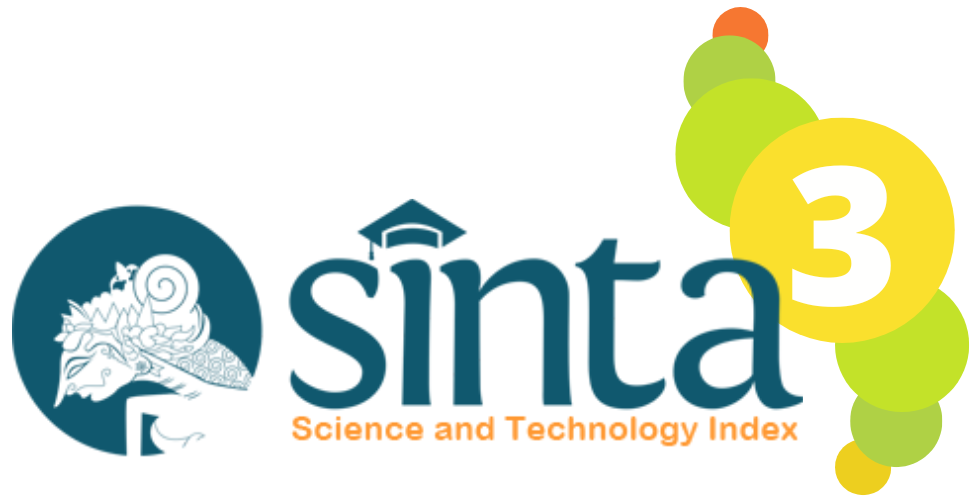Penerapan Model Problem Based Learning: Analisis Tingkat Kemampuan Kognitif Individual Siswa Menggunakan Pendekatan Rasch Model
Sari
Kata Kunci
Teks Lengkap:
PDFReferensi
Amin, A. M., Suhandi, A., & Efendi, R. (2023). Development of Questionnaire to Evaluate Students’ Perception about Real and Virtual Refutational Laboratory: A Rasch Measurement Approach. Jurnal Pendidikan Fisika, 11(1), 59–72. https://doi.org/10.26618/jpf.v11i1.9228
Azura, A., Samsudin, A., & Utari, S. (2020). Analisis Peta Wright Keterampilan Berpikir Level LOTs dan HOTs Siswa Kelas XI pada Materi Miopi. WaPFi (Wahana Pendidikan Fisika), 5(1), 76–83. https://doi.org/10.17509/wapfi.v5i1.23447
Beede, D. N., Julian, T. A., Langdon, D., McKittrick, G., Khan, B., & Doms, M. E. (2011). Women in STEM: A Gender Gap to Innovation. SSRN Electronic Journal, August, 04–11. https://doi.org/10.2139/ssrn.1964782
Bohori, M., & Liliawati, W. (2019). Analisis penguasaan konsep siswa menggunakan Rasch Model pada materi usaha dan energi. Prosiding Seminar Nasional Fisika 5.0, 0, 138–143.
Bonsaksen, T., Kottorp, A., Gay, C., Fagermoen, M. S., & Lerdal, A. (2013). Rasch analysis of the General Self-Efficacy Scale in a sample of persons with morbid obesity. Health and Quality of Life Outcomes, 11(1), 202. https://doi.org/10.1186/1477-7525-11-202
Bouchée, T., de Putter - Smits, L., Thurlings, M., & Pepin, B. (2022). Towards a better understanding of conceptual difficulties in introductory quantum physics courses. Studies in Science Education, 58(2), 183–202. https://doi.org/10.1080/03057267.2021.1963579
Compton, R. M., Owilli, A. O., Norlin, E. E., & Hubbard Murdoch, N. L. (2020). Does problem-based learning in Nursing Education Empower Learning? Nurse Education in Practice, 44, 102752. https://doi.org/10.1016/j.nepr.2020.102752
Hernández-Ramos, J., Pernaa, J., Cáceres-Jensen, L., & RodrÃguez-Becerra, J. (2021). The Effects of Using Socio-Scientific Issues and Technology in Problem-Based Learning: A Systematic Review. Education Sciences, 11(10), 640. https://doi.org/10.3390/educsci11100640
Hidayatullah, Z., Wilujeng, I., Nurhasanah, N., Gusemanto, T. G., & Makhrus, M. (2021). Synthesis of the 21st Century Skills (4C) Based Physics Education Research In Indonesia. JIPF (Jurnal Ilmu Pendidikan Fisika), 6(1), 88. https://doi.org/10.26737/jipf.v6i1.1889
Jimmy, J., Utama, F., Felix, F., & Laia, A. P. (2021). Aplikasi Pembelajaran Penyortiran Menggunakan Algoritma Super Sort Berbasis Mobile. Jurnal SIFO Mikroskil, 22(1), 19–32. https://doi.org/10.55601/jsm.v22i1.771
Jumadi, J., Sukarelawan, M. I., & Kuswanto, H. (2023). An investigation of item bias in the four-tier diagnostic test using Rasch model. International Journal of Evaluation and Research in Education (IJERE), 12(2), 622. https://doi.org/10.11591/ijere.v12i2.22845
Karoror, I., & Jalmo, T. (2022). Profile of Critical Thinking Ability in Ecosystem Materials using the Rasch Model. Jurnal Penelitian Pendidikan IPA, 8(3), 1599–1604. https://doi.org/10.29303/jppipa.v8i3.1394
Kusumatuty, A. J., Baedhowi, B., & Murwaningsih, T. (2018). The Implementation of Problem Based Learning (PBL) Based E-Book to Improve The Learning Outcome of Vocational High School (VHS) Students. International Journal of Educational Research Review, 3(4), 103–110. https://doi.org/10.24331/ijere.454794
Loyens, S. M. M., Jones, S. H., Mikkers, J., & van Gog, T. (2015). Problem-based learning as a facilitator of conceptual change. Learning and Instruction, 38, 34–42. https://doi.org/10.1016/j.learninstruc.2015.03.002
Monsang, P., Srikoon, S., & Wichaino, N. (2021). The effects of problem based learning for enhancing science problem solving skills. Journal of Physics: Conference Series, 1835(1), 012016. https://doi.org/10.1088/1742-6596/1835/1/012016
Park, M., Liu, X., & Waight, N. (2017). Development of the Connected Chemistry as Formative Assessment Pedagogy for High School Chemistry Teaching. Journal of Chemical Education, 94(3), 273–281. https://doi.org/10.1021/acs.jchemed.6b00299
Rosa, F. O., & Widiawati, T. (2022). Analysis of the Difficulty of Understanding the Concepts of Vibration and Waves of Students Junior High School. International Journal of Research and Review, 9(12), 687–693. https://doi.org/10.52403/ijrr.20221279
Ruffing, S., Wach, F.-S., Spinath, F. M., Brünken, R., & Karbach, J. (2015). Learning strategies and general cognitive ability as predictors of gender- specific academic achievement. Frontiers in Psychology, 6, 1–12. https://doi.org/10.3389/fpsyg.2015.01238
Sanjaya, W. (2021). Analisis Perubahan Sifat Karakter di Sepanjang Perjalanannya Berdasarkan Pola Kejadian dan Plot Segment dalam Film “Green Book.†Rekam, 17(1), 77–86. https://doi.org/10.24821/rekam.v17i1.4433
Sharma, M., & Ankit, D. P. (2023). Importance of Education in This Challenging World. Smart Moves Journal IJELLH, 11(3), 9–19. https://doi.org/10.24113/ijellh.v11i3.11408
Shavkidinova, D., Suyunova, F., & Kholdarova, J. (2023). Education is an Important Factor in Human and Country Development. Current Research Journal of Pedagogics, 04(01), 27–34. https://doi.org/10.37547/pedagogics-crjp-04-01-04
Shi, Y., & Qu, S. (2021). Cognitive Ability and Self-Control’s Influence on High School Students’ Comprehensive Academic Performance. Frontiers in Psychology, 12, 1–10. https://doi.org/10.3389/fpsyg.2021.783673
Sukarelawan, M. I., Indratno, T. K., & Ayu, S. M. (2024). N-gain vs stacking : analisis perubahan abilitas peserta didik dalam desain one group pretest-posttest. Suryacahya.
Sukarelawan, M. I., Indratno, T. K., Widodo, W., Dwijananti, P., Hikmah, F. N., & Abdullah, N. S. Y. (2024). What do my students need? Deep analysis of student’s individual cognitive ability using person diagnostic map. Momentum: Physics Education Journal, 8(2), in Press. https://doi.org/10.21067/mpej.v8i2.9900
Sukarelawan, M. I., Jumadi, J., Kuswanto, H., Soeharto, S., & Hikmah, F. N. (2021). Rasch Analysis to Evaluate the Psychometric Properties of Junior Metacognitive Awareness Inventory in the Indonesian Context. Jurnal Pendidikan IPA Indonesia, 10(4), 486–495. https://doi.org/10.15294/jpii.v10i4.27114
Sukarelawan, M. I., Jumadi, Kuswanto, H., Nurjannah, T., Hikmah, F. N., & Ramadhan, M. F. (2021). Implementation of Rasch Model for Mapping Students’ Metacognitive Awareness. Jurnal Pendidikan Fisika Indonesia, 17(2), 86–93. https://doi.org/10.15294/jpfi.v17i2.27172
Sukarelawan, M. I., Sriyanto, Sa’adah, M., Jupri, J., Hikmah, F. N., & Nursulistiyo, E. (2024). Is It True That My Students Don’t Understand the Static Fluid Concepts? Rasch Modeling Perspective. Jurnal Pendidikan Dan Pengajaran, 57(1), In press. https://ejournal.undiksha.ac.id/index.php/JPP/article/view/57883
Suprihadi, R. A. P., & Ma rifah, D. R. (2022). Literature study: various abilities of high school students obtained from the application of problem-based learning models in the field of natural science. Journal on Biology and Instruction, 2(2), 71–76. https://doi.org/10.26555/joubins.v2i2.6947
Thorndahl, K. L., & Stentoft, D. (2020). Thinking Critically About Critical Thinking and Problem-Based Learning in Higher Education: A Scoping Review. Interdisciplinary Journal of Problem-Based Learning, 14(1), 1–20. https://doi.org/10.14434/ijpbl.v14i1.28773
Tursynkulova, E., Madiyarov, N., Sultanbek, T., & Duysebayeva, P. (2023). The effect of problem-based learning on cognitive skills in solving geometric construction problems: a case study in Kazakhstan. Frontiers in Education, 8, 1–19. https://doi.org/10.3389/feduc.2023.1284305
Wei, S., Liu, X., Wang, Z., & Wang, X. (2012). Using Rasch Measurement To Develop a Computer Modeling-Based Instrument To Assess Students’ Conceptual Understanding of Matter. Journal of Chemical Education, 89(3), 335–345. https://doi.org/10.1021/ed100852t
Weiss, E. M., Kemmler, G., Deisenhammer, E. A., Fleischhacker, W. W., & Delazer, M. (2003). Sex differences in cognitive functions. Personality and Individual Differences, 35(4), 863–875. https://doi.org/10.1016/S0191-8869(02)00288-X
Wenno, I. H., Limba, A., & Silahoy, Y. G. M. (2022). The development of physics learning tools to improve critical thinking skills. International Journal of Evaluation and Research in Education (IJERE), 11(2), 862. https://doi.org/10.11591/ijere.v11i2.21621
DOI: https://doi.org/10.33387/j.edu.v22i1.7816
Refbacks
- Saat ini tidak ada refbacks.
| Journal Name | Jurnal Edukasi |
| Print ISSN | 1978-6115 |
| Elektronik ISSN | 2597-9213 |
| Publisher | Fakultas Keguruan dan Ilmu Pendidikan (FKIP) Universitas Khairun |
| Address | Jalan Bandara Sultan Baabullah Kampus I Unkhair, Kelurahan Akehuda, 97728 Kecamatan Kota Ternate Utara, Provinsi Maluku Utara |
| Country | Indonesia |
| j.edukasi@unkhair.ac.id / edukasi2019@gmail.com | |
| URL | https://ejournal.unkhair.ac.id/index.php/edu/index |
| DOI | http://doi.org/10.33387/edu |
Indexed By:
-----------------------------------------------------------------------------------------------------------------------------------------------------------------------------

EDUKASI is licensed under a‚ Creative Commons Attribution-NonCommercial 4.0 International License.












